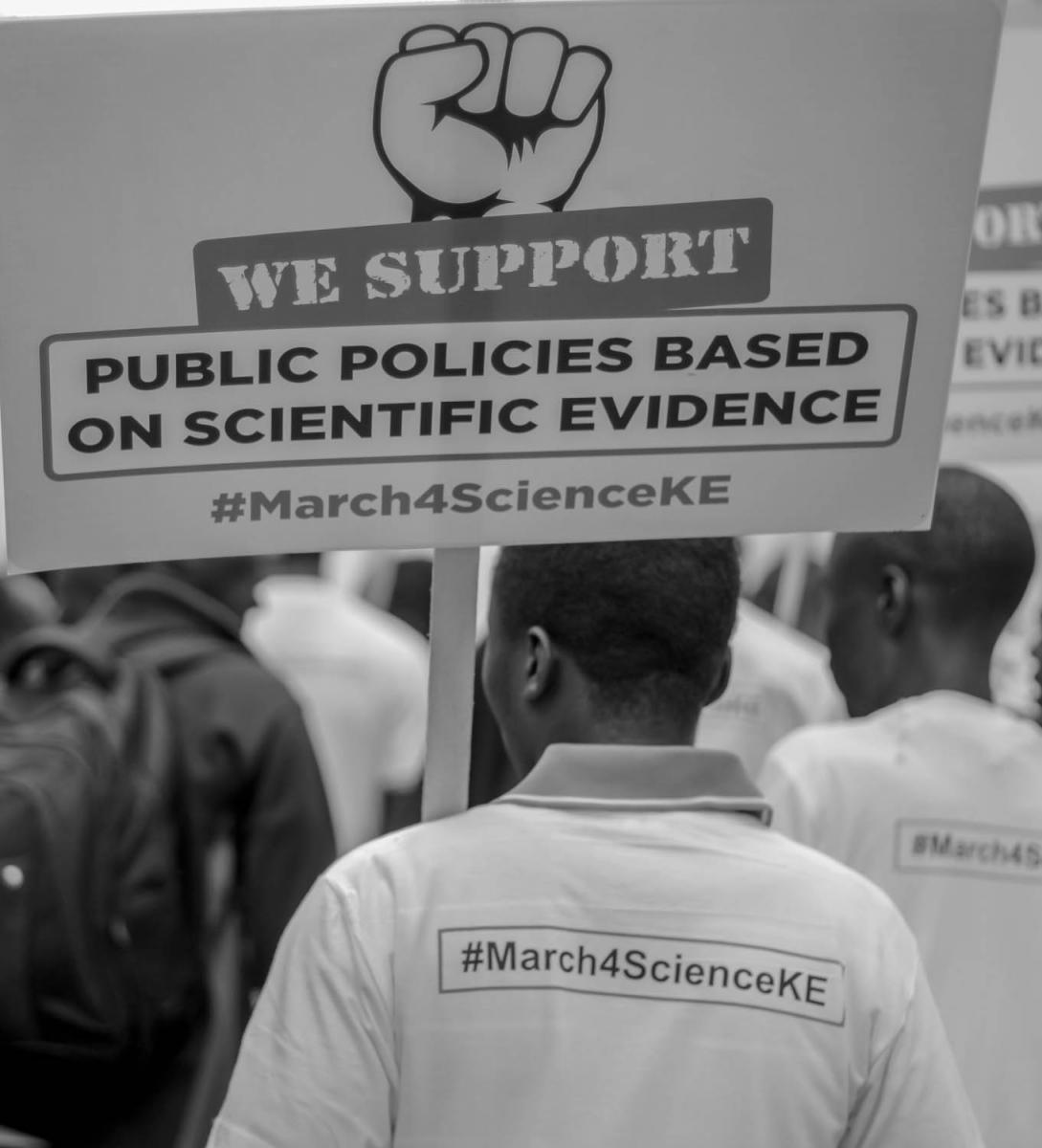
The date April 22, 2017 may go down in history as a world first. Not only was it the first time that scientists took to the streets to march in defense of the most basic values evidence and truth but it was the first outing for what is fast becoming a new phenomenon: a global pro-science movement. At the final count, more than 600 March for Science events took place around the world.
The ambivalence that scientists feel about activism was clearly on display in the various Marches for Science. “I really should be writing!” apologized several placards seen in different cities. “You know things are serious when the introverts arrive,” read another. Some of the chants were similarly baffling to passers-by. London marchers chanted, “What do we want? Evidence-based policy. When do we want it? After peer review!” as they filed past 10 Downing Street.
As an official partner of the March for Science, the Alliance for Science at Cornell University assisted with the main march in Washington D.C., as its Global Leadership Fellows and country coordinators led or supported march events in Kenya, Uganda, Bangladesh, Hawaii, New Mexico, Nigeria, the Philippines, London, Ghana, South Africa, Chile, Madrid, San Francisco and Mexico City.
Many US-based science allies marched in D.C. under the banner of “We Are the 97%,” referring to the 97 percent scientific consensus on the reality of human-caused climate change. Global warming was probably the most prominent issue highlighted by marchers in the US and London, as perhaps the most clear example of where science has come under attack by politically-motivated deniers. Vaccinations, evolution and GMOs were also referenced as other examples of various interest groups denying the scientific consensus.
The numbers were impressive. According to the latest official estimates, more than 1 million people marched in cities and towns across the globe. Some 7,000 joined the March for Science in London, while in Mexico, an estimated 5,000 people came out for science, and not just in Mexico City. People also joined marches in the Mexican states of Puebla, Queretaro, Guanajuato, Jalisco, Nuevo Leon, San Luis Potosi, Veracruz, Oaxaca, Sinaloa, Baja California, Yucatan, Tabasco and Morelos, all of them speaking up to show their support for scientific objectivity.
“As citizens, it is our right to have policy decisions based in science, not in myths and misinformation, as sadly happens in Mexico as well as in others parts of the world,” said Mexican Alliance for Science fellow Luis Ventura-Martinez. While marchers in Washington, D.C., endured heavy showers as they listened to Bill Nye the Science Guy explain the value of scientific research, the weather was also cold and wet in Uganda, where according to co-organizer Nassib Mugwanya more than 70 people braved muddy streets of the capital Kampala to show their “love for science.”
Uganda’s march was led by a brass band from the starting point of Makerere University, while the marchers themselves comprised students, farmers, civil society and media representatives, as well as scientists themselves. The issues raised included HIV/ AIDs, malnutrition and poverty, as well as the same overall concern shared by marchers worldwide in the words of Mugwanya “to remind policy makers of the importance of science in influencing policy and guiding long-term decision-making.”
Science and environment were common global themes for marchers. In Ghana, Alliance for Science Fellow Joseph Opoku Gakpo told marchers: “Standing up for science and defending the environment are moral obligations that demand the best of all of us and we will not let Mother Earth down.” As well as the need for “science to be at the forefront of national development,” Ghanaian marchers were also concerned as were many more around the world about finding “ways to encourage more women to venture into science and technology”.
More than 400 joined the march in Nigeria’s capital of Abuja, in an atmosphere that was reportedly “electrifying,” according to participant Henry Kumba of the National Biotechnology Development Agency, which threw open its laboratories after the march for non-scientists to tour and learn about the value of its research. Nigeria’s effort was “more than a march,” says Kumba. “It was a celebration of Nigeria s potential to change for the better with science leading the way.”
Moving to Asia, 1,000 people joined the throngs in the Philippines at Quezon City, where they warmed up with a Zumba routine and listened to world-renowned Filipino scientist and agriculturist Dr. William Dar tell marchers: “Science is key in ensuring food and nutritional security in every country.” Similar themes were highlighted in Dhaka, where Arif Hossain, coordinator of the Alliance for Science Bangladesh and that nation s science march lead organizer, brought together hundreds of participants at rallies and events at Sher-e-Bangla Agricultural University, Bangladesh Agricultural University and Jahangirnagar University.
The challenge now will be to translate a single day’s marching into an enduring global pro-science movement. Social media will no doubt play an important role, as will specific issues that need focused attention due to anti-science political movements. As so many of the marchers agreed, we need to move beyond post-truth and rediscover the value of empiricism and objective evidence. That will certainly take more than one march to achieve. But the global network activated by the March for Science is a critically important first step.
Mark Lynas is an author, environmentalist, pro-science campaigner and Visiting Fellow at the Cornell Alliance for Science.
